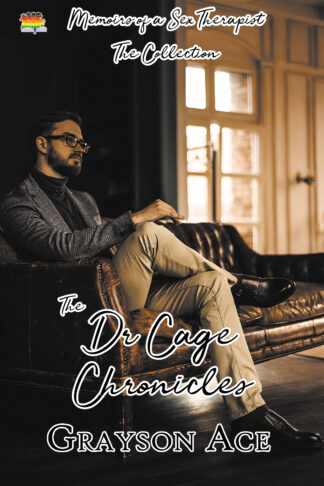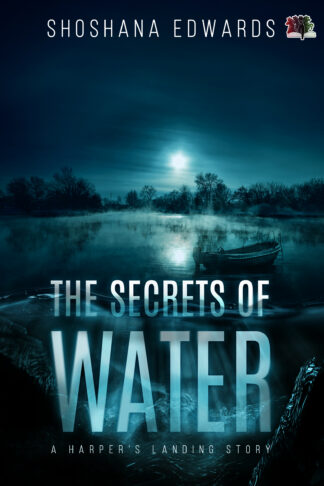
Have you ever finished a book and find yourself dying to talk about it? You can tell others what you think by writing a review and see what others thinks by reading their reviews, but what if you want more interaction? Book club questions can help guide a focused discussion!
Readers love discussing books with fellow readers. They love it even more when they have somewhere to begin that conversation. A convenient way to make that discussion easier is to include a list of book club questions at the end of your book.
What are book club questions? These are 10-15 open-ended questions designed to be answered by people who have finished the book and want to talk about it. Don’t worry about spoilers—assume that anyone seeing the questions has finished the book. They already know what happens—and they’re dying to talk about it!
Have you ever tried to talk about a book with a friend, but you don’t know where to begin? A list of questions to guide the conversation can be a useful tool to get things started.
How do you write engaging book club questions? Here are some things to keep in mind.
- Don’t ask yes/no questions.
- These do not encourage discussion at all.
- Did you like Character A? Yes. End of discussion. Boring.
- Did you like the ending? No. End of conversation. Boo!
- Will you read the next book? Yes… You see where I’m going with this.
- These do not encourage discussion at all.
- Do ask open-ended questions that force the respondent to justify their answer.
- These allow readers to explain how and why they reacted this way.
- Why did you like Character A more than Character B? Well, let me tell you that, at first…
- Why did you like/dislike the way the book ended? I think I liked it because I’m a sucker for love stories but…
- What do you think is next for these characters? What do you predict for the next book? Why do you think that’s where this is going?
- These allow readers to explain how and why they reacted this way.
- Don’t ask simple questions.
- If they can answer in one word or phrase, it’s too basic, and the conversation will end without getting into the good stuff.
- What was your favorite part? The bar fight.
- Who is your favorite character? The bartender.
- If they can answer in one word or phrase, it’s too basic, and the conversation will end without getting into the good stuff.
- Do ask complicated questions.
- Why is our favorite word when crafting book club questions. It forces readers to think about the reasons supporting their position.
- Why was the bar fight your favorite part? What about it struck you that way? Why do you think you appreciated that scene over the rest?
- What about the bartender appeals to you? Why that character and not Character X or Y?
- Why is our favorite word when crafting book club questions. It forces readers to think about the reasons supporting their position.
- Do focus on the themes in your story and ask readers to react to them.
- Character X struggles with Topic B. How does this affect your perception of their journey in this story?
- Theme C is a major part of the conflict in this story. How does this affect Character B?
Here are some sample questions from a selection of 4HP books:
- In what ways did the characters and their challenges feel real to you? Were there moments when the story felt unbelievable? (The Shooting by CK Westbrook)
- This story focuses on the tendency to blame the messenger when something incomprehensible happens. How realistic did you find Kate’s experience? (The Collision by CK Westbrook)
- Kate often says she would not want to live in a world that does not include several things that are important to her. What are some things you value as highly in your world? (The Collision by CK Westbrook)
- “Centurion” focuses on the anger of an old woman—what does her perspective on her life say about the way society treats the elderly? (Cheeky, Bloody Articles by Cathleen Davies)
- “Your Son’s Good at Time’s Tables” showcases a familiar situation—someone wants to speak up but doesn’t and then obsesses about what should have been said–can you relate to this feeling of missing the moment to connect? (Cheeky, Bloody Articles by Cathleen Davies)
- Many of these stories: “White Butterflies,” “Blank Face,” and “Oh, Rats!” deal with grief and survivor’s guilt. What do you think the author is trying to say about grief? Do you feel this is an accurate representation of suffering? (Cheeky, Bloody Articles by Cathleen Davies)
- If you could capture the memories and emotions of a deceased loved one, would that make them the same person they were when alive? Why? (The Bench by Ty Carlson)
- If data could feel pain, loss, sadness, etc., would there be a moral consequence for its cause? (The Bench by Ty Carlson)
- The author was inspired by medieval period myths, lores, legends, and history. How much of this can you find evidence of within the reading? People, places, events, culture, or other means? (Cedric: The Demonic Knight by Valerie Willis)
- Who’s the better werewolf: Nyctimus or Romasanta? Why? (Romasanta by Valerie Willis)
- Tony is thrown into his quest with little direction. In what ways is this vital for his character development? (King Incubus by Valerie Willis)
- Who should Hannah end up with: Klauden or Rory or neither? Why? (Klauden’s Ring by JM Paquette)
- Hannah struggles with the conflicting values of her homeland and her newfound friends. How well does she handle this challenge throughout the story? What could she have done better? What did she do well? (Hannah’s Heart by JM Paquette)
Including book club questions in the back of your book is the easiest way to get picked up by book clubs—and even libraries—but more than that, your readers will appreciate your conversation starters.





